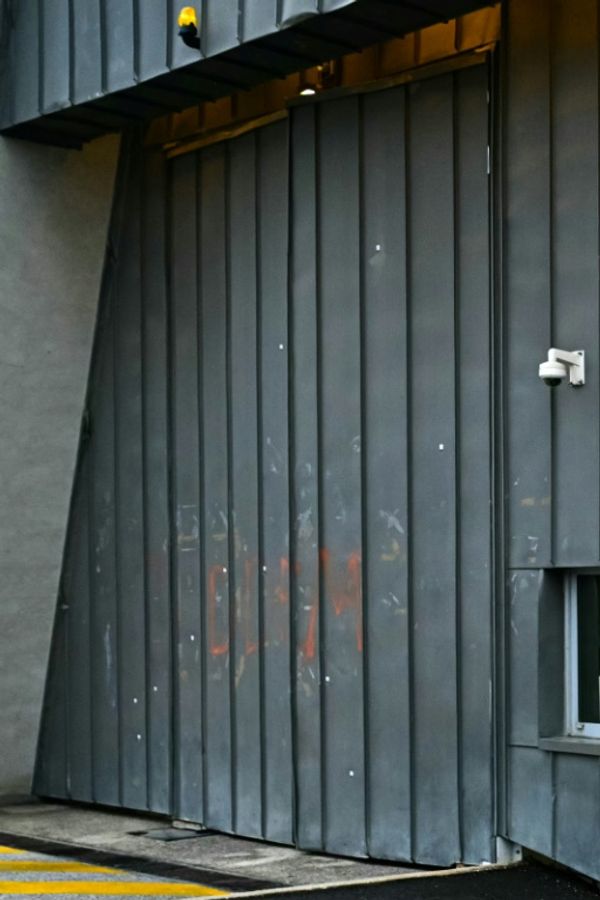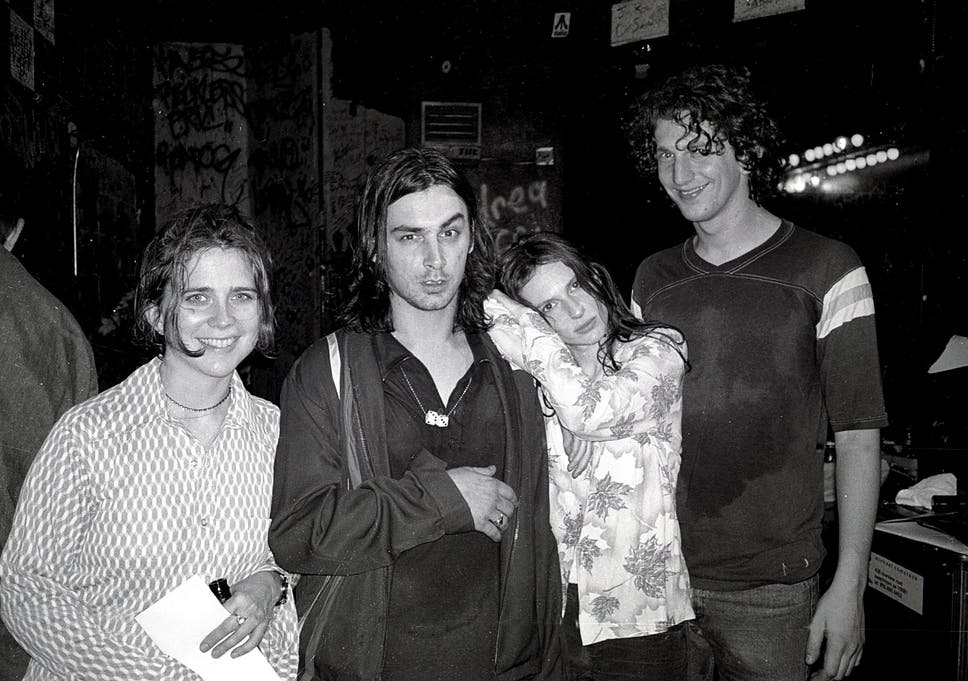
The Nineties never sounded better than when Veruca Salt’s American Thighswas blasting at maximum volume. A thrilling, transgressive assault, the album – which made its debut 25 years ago this week – was an uncorked genie’s bottle of Generation X angst and delirium. Alongside Nirvana’s Nevermind, The Breeders’ Last Splash and Smashing Pumpkins’ Siamese Dream, the record stands tall as one of the decade’s most essential slabs of headbanging ferocity. You could laugh, cry and scream along to it. Veruca Salt certainly did as American Thighs catapulted them from the Chicago indie underground into the belly of the corporate rock behemoth. It didn’t end especially well. But, goodness, what a rollercoaster.
The single “Seether” set the tone, with metal riffs and dew-drop vocals from front women Nina Gordon and Louise Post. It was a song about feminine rage in an era when women in rock were asserting themselves loudly and proudly. And as with all the best bands from that period Veruca Salt looked as fantastic as they sounded. Just like Nirvana, they elevated just-out-bed scruffiness into high fashion.
The extent of Veruca Salt’s star power was clear when, after just a few months on the road, they played the Glastonbury main stage in 1995. You can watch on YouTube, though be warned: it may make you lament the bloodless condition of rock in 2019. Gordon wears a halter-top and a snarl. Post, as was the fashion at the time, rocks in a full length white dress. They plunge into “Seether” and, for those three minutes and 46 seconds, are the best, coolest, smartest band on the planet.
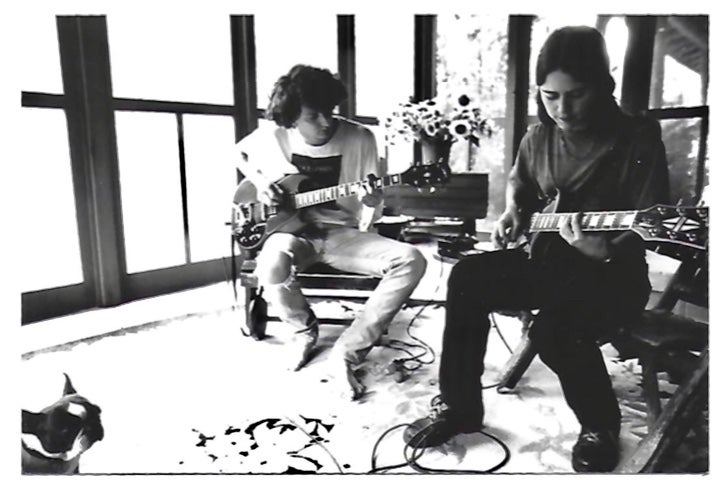
Louise Post: ‘The sky was the limit: I knew it as soon as I heard our voices’ (Pics courtesy of Nina Gordon)
They should have been huge. For a while, backed by Nirvana’s label, Geffen, they almost were. And then it all unravelled, along with Gordon and Post’s almost too intense friendship. But they left us with American Thighs (named for a line in AC/DC’s “You Shook Me All Night Long”). A quarter century on, its growling, snarky melodies and slamming riffs remain singular – as evocative of the Nineties as Winona Ryder’s fringe or Kurt Cobain’s Dennis the Menace sweater. It deserves to be acclaimed far more than it is.
“You look back and it was ridiculous that we played Glastonbury so quickly,” says Gordon today. “We’d barely been on tour. It was crazy. I look back at that footage of Glastonbury. I can’t believe I was comfortable doing that after such a short time.”
Veruca Salt had been riding a wave of hype for months by the time Glastonbury came around. In March the previous year, with “Seether” already picking up buzz in A&R departments in London and Los Angeles, they’d played a packed tent at the South by Southwest showcase in Austin (the original venue having burned down the previous night).
It’s the Texas heat Gordon remembers – that and a crowd heaving with record label executives. The Chicago scene was at that point regarded as the epicentre of American rock. The shine had gone off Seattle (Kurt Cobain would take his life shortly afterwards). Chicago had already produced Smashing Pumpkins – a grunge band comfortable with their prog and FM rock influences – and the third wave feminist crotch-kick that was Liz Phair’s incredible Exile in Guyville.
Veruca Salt appeared to split the difference between those artists. They rocked as hard as the Pumpkins yet with two female vocalists tapping the take no prisoners feminism that Phair had channelled so forcefully. Post and Gordon saw themselves as something different and unique, however: a heavy rock band with a female perspective and pop streak the width of the Chicago River. But they were working with Phair’s producer, Brad Wood, and recording in the same West Side Chicago studio where she had laid down Guyville.
“There were a lot of female fronted bands at the time obviously,” says Gordon. “And there was a big focus on anything coming out of Chicago because of Liz Phair and the Smashing Pumpkins. People were excited – these were songs you could sing to with heavy guitars.”
Gordon was raised in Chicago’s Gold Coast neighbourhood. Post grew up in St Louis, Missouri, on a diet of FM rock and heavy metal. They were introduced by their mutual friend, actress Lili Taylor, who felt their voices and songwriting sensibilities would work well together. They hit it off instantly and were soon inseparable. This would make the pain of their subsequent falling-out even more unbearable. And it would taint their memories of American Thighs until their reconciliation several years ago (Veruca Salt are very much a functioning band today).
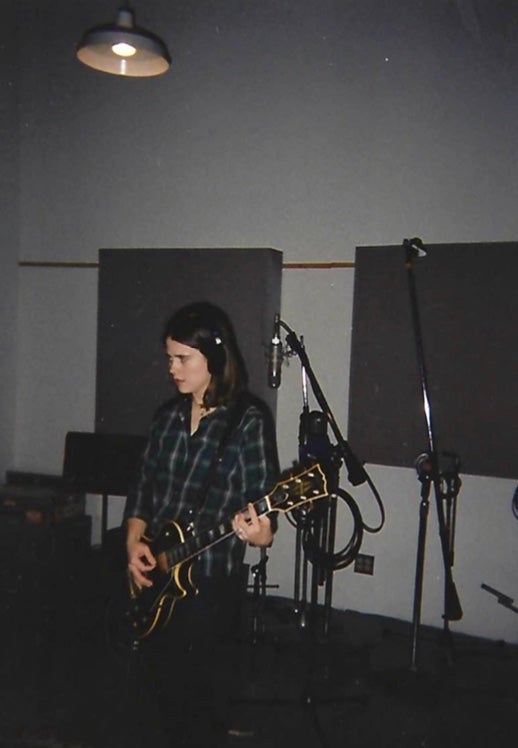
“The sky was the limit. I could feel that as soon as I heard our voices. It was like being skyrocketed into space really,” recalls Post. After “Seether” and American Thighs, she would go on to claim a separate slice of rock immortality as the inspiration for “Everlong” by her then-boyfriend Dave Grohl and his band Foo Fighters.
But that was all in the future when Gordon and Post started hanging out at each other’s apartments (Post was living in trendy Wicker Park, later immortalised in the John Cusack adaptation of Nick Hornby’s High Fidelity). With Gordon’s brother, Jim Shapiro, joining on drums and Steve Lack on bass and the spoiled brat from Charlie and the Chocolate Factory lending her name, Veruca Salt went from pipe dream to living, hard-rocking entity. It was just the beginning.
“We were entrenched in the Chicago music scene. But it didn’t start that way,” says Post. “I was in a theatre company and waiting tables at a jazz bar. Nina worked at the Art Institute. My friends didn’t go to shows. I remember scalping a ticket to Jane’s Addiction and going on my own. I was in the pit thinking I might die tonight and it would be okay because I was in heaven.”
With “Seether” taking off, soon it was Post staring down at the heaving mosh pit. Their original indie label, Chicago’s Minty Fresh, advised they court the UK market first. That way they could return to the US with the endorsement of the British rock press. In the Nineties, acclaim in Britain was the fastest means of launching a band back in America. “Seether” duly came out on Britain on the tiny imprint Scared Hitless (which would release grand total of six singles and one LP before shuttering).
“We went to London and stayed in the hotel where all the bands hung out, the Columbia,” says Gordon. “We’d be in the bar and Justine Frischmann and Damon Albarn would be there. The guys from Suede were just hanging out talking.”
“The UK always gives a band a run for its money,” adds Post. “You’re either the British darling or you’re not. Even if you are the darling you’re still spat upon and mocked. We were given a lot of press. We were also jeered at. We weren’t taken seriously at first. We had to prove our worth. There was one early headline: Dig the New Breeders…In the British press the Breeders thing was inescapable. We would bristle at that.”
This was the Nineties and so sexism was obviously an issue too. (In 2017, Post was one of 38 women to accuse film director James Toback of sexual harassment.) A radio station that had already playlisted Garbage or – sorry Louise – The B***ers might decline to spin Veruca Salt because then there would be women all over the airwaves and who knew what might happen?
“The patriarchy was firmly in place,” says Gordon. “The structure was solid. We were always bumping up against things. You’d go to radio stations and meet the programme director. They wanted a picture and would put their arms around you and maybe grope you a little. They would put their hand on your ass. There was that all the time.”
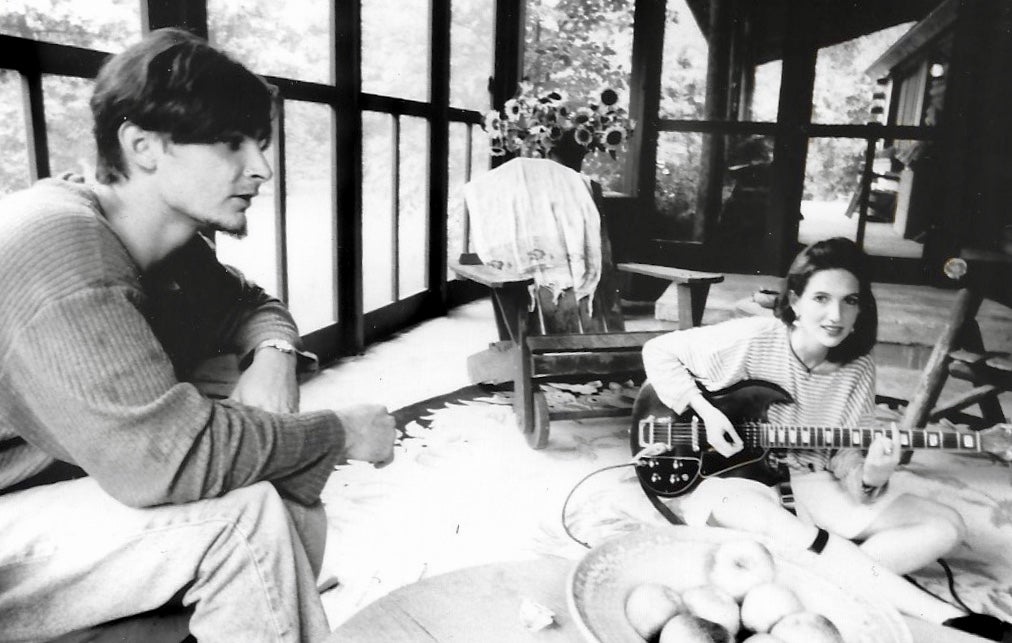
Back in Chicago, meanwhile, the mother of all backlashes was building. The city that gave the world indie fundamentalist Steve Albini and jazz fusionists Tortoise is, or at least was, notoriously judgemental about artists daring to go out into the world and have success. As two strong women not in the least embarrassed about being on MTV, Gordon and Post were seen as fair game. Where the British music press was gently mocking, in the Chicago media the daggers were out.
“After we switched over to Geffen and started playing bigger venues and were on MTV all the time… there was a pushback. There was a feeling of, ‘Who are they…why did they sell out so fast?’ In our mind we had done nothing of the kind,” says Gordon. “Selling out is when you do something you don’t believe in. There were definitely a few nasty articles written. It was hurtful, I’m not going to lie. We were in our twenties. You care what other people think. Nobody likes to read anything mean about themselves. It didn’t feel good.”
But the real missteps were by Veruca Salt themselves. With “Seether” a sensation either sides of the Atlantic – it was voted number three in the influential John Peel Festive 50 that Christmas – there was pressure to deliver with their next single. This caused more conflict than it should have. Would they go with a song written by Gordon (as “Seether” was) or one by Post? Individual band members had their own opinions.The label had its suggestions. Their management brought another, contradictory perspective. It was a just one big hot mess.
To make the situation even more fraught, after they had settled on “Number One Blind”, there was a panic over the video. Steve Hanft, who had directed Beck’s “Loser”, was hired to shoot the promo. But Gordon felt the slightly whimsical results weren’t quite right (she has since changed her mind). She talked Post into vetoing in. From Geffen’s perspective it was the beginning of the end. For a red hot band to flub their big moment in such a fashion was unacceptable.
“It was very expensive,” recalls Post. “We just freaked out and didn’t deliver it to MTV, which was unheard of at the time. At that point the label pulled back their enthusiasm and their push for the album.”
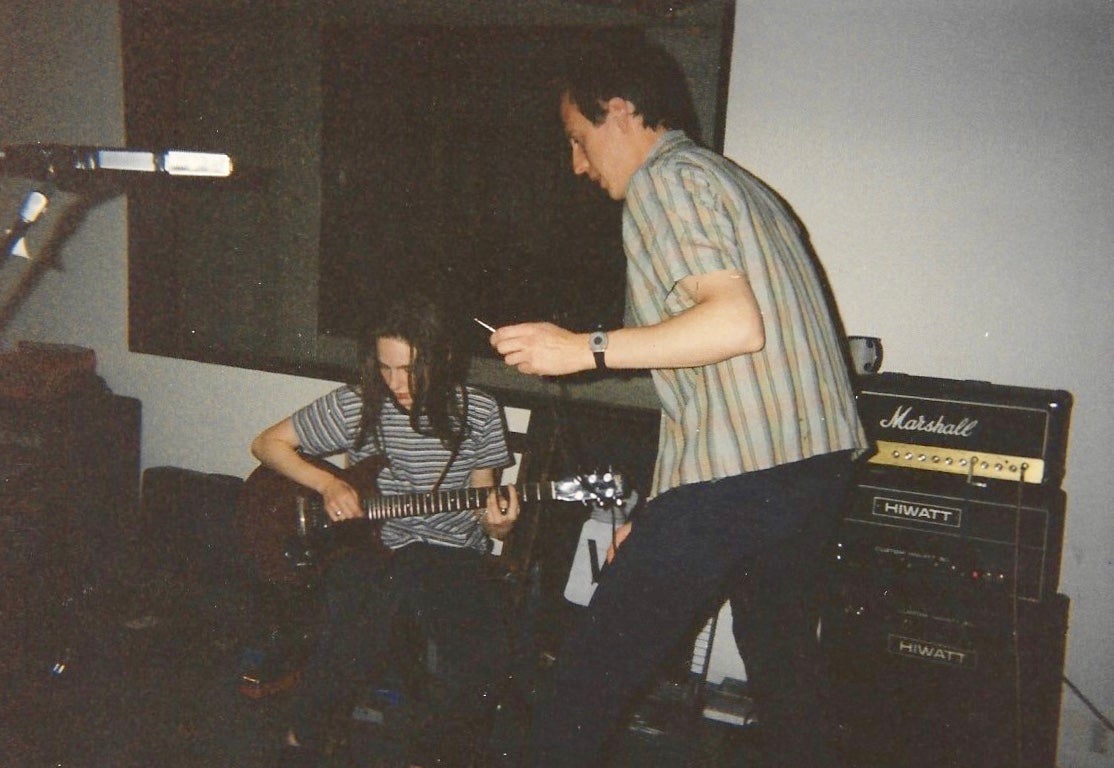
Gordon and Post had a nasty and seemingly irreconcilable parting of the ways in 1998. It was described by AllMusic as a “a bitter falling out over stolen boyfriends, stabbed backs, and general unpleasantness”. Gordon started a solo career; Post took over as solitary front woman of Veruca Salt. She poured all her anxiety and resentment – she had recently broken up with Grohl too – into the 2000 LP Resolver, which yielded lyrics such as: “She didn’t get it, so f*** her.”
The sundering of the friendship made memories of what they had been through hugely bittersweet, for Gordon especially. There is a happy ending, however. In 2013, Gordon and Post met for dinner in Los Angeles, where they both now live with their husbands and children. Older and possibly wiser, they let bygones by bygones. “For now let’s just say this: hatchets buried, axes exhumed,” went an announcement on Veruca Salt’s Facebook page, confirming the band was getting back together again. An album, Ghost Notes, followed and the group remains an ongoing project.
“We were so naive,” recalls Gordon. “We thought it would never end. We thought we’d never break up. You look back on it the same way you would a romantic relationship. It’s much sweeter now that we’re friends again. So much of those early records were about my relationship with Louise, our friendship. Two women conquering the world.”
Gordon still feels guilty about one incident in particular. In summer 1995, they were offered an American arena tour with heavy rock band Live (of whom they were not fans) and PJ Harvey (with whom they were borderline obsessed). Post was at the time recovering from a slipped disc and in no state to go on the road. Gordon, worried about missing the chance of a lifetime, pressured her friend to pick up her Stratocaster and walk.
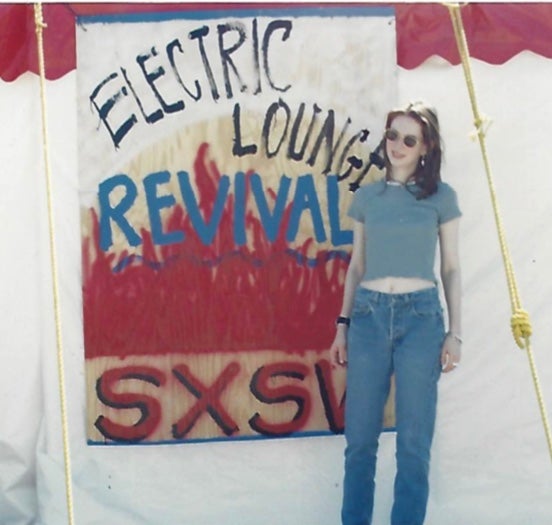
“It was a huge opportunity,” says Gordon. “We really pushed her to go on tour even with her injured back. We made all sorts of plans for what would happen if she was in pain. We had a couch on stage where she could lie down and play her solos. We had a back up soloist that came on tour with us. He never played a note. Louise wore a neck brace on stage that we tried to make it look cool. Looking back you think, ‘Why did we do that to her?’ I remember arguing with her, fighting with her about it, and siding with our managers.”
Post, her bandmate will be relieved to discover, does not bear a grudge. “I was just lying in my apartment watching Ace Ventura: Pet Detective. I was so miserable. All I could do was lie on my side and watch movies. They made me go out on this tour which was tremendous. I’ve got to tell Nina to let that one go.”



